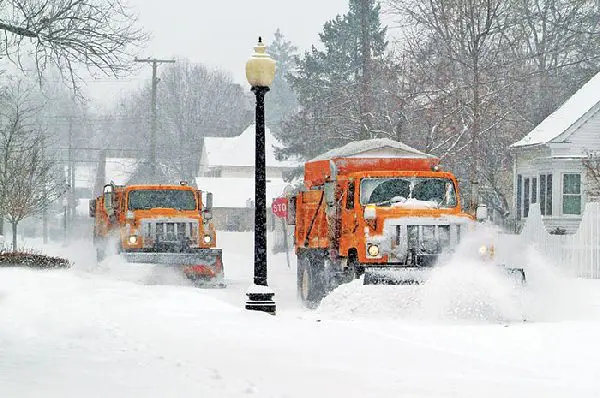
DEARBORN — The city is gearing up for winter by preparing a pilot program in the south-end and northeast neighborhoods that would allow residents to temporarily park their vehicles on designated streets during a snow emergency.
The city is also enforcing a new policy that would increase snow emergency tickets to a one time flat rate of $80. Originally, a citation had cost only $40 if it was paid in three business days. If a resident didn’t pay the ticket within that period, it was then increased to $80.
In previous years, the Dearborn Police Department had issued citations to vehicles parked on neighborhood streets during snow emergencies because plow trucks needed to navigate those streets. Last year, the city issued close to 5,000 citations during what was the heaviest snowfall the metro Detroit area had seen in decades.
“When we declare a snow emergency, we are looking out for our residents,” said Mary Laundroche, director of the Department of Public Information. “We want them to be able to drive on clear roads so that they can stay safe—and reach their jobs on time, or make it to whatever destination they need to get to in wintery conditions.”
The city is also looking to keep emergency response time within standards by enforcing the snow emergency policies. Usually, the mayor declares a snow emergency within a 12-24 hour period.
During last year’s snow emergencies, the city had sent out messages via the media, Facebook, Twitter, the city website and CDTV. The police department’s Nixle text message alert system, which reaches more than 8,000 phone numbers, distributed snow emergency notifications as well. Emergency sirens are also activated at the beginning of a snow emergency.
But despite all of the warnings, residents continued to receive citations for leaving their vehicles parked on the streets. The problem appeared more prominent in the city’s east end neighborhoods, where houses are more congested and many families owned more than three vehicles, making it difficult to park all of them off-street.
Earlier this year, the city began looking at the possibility of allocating parking lots for residents to park their vehicles during snow emergencies. The city considered neighborhood parks and local schools and churches as potential areas. However, they received negative feedback from representatives of those facilities.
The city then determined that the best route to take would be to allocate specific streets for snow emergency parking.
After inquiring with both the Department of Public Works and the police department to determine which areas appeared to suffer from the most congestion issues during a snow emergency, the city determined that the south-end neighborhood, and the northeast neighborhoods— from Ford to Warren and from Chase to Oakman— would benefit the most from relief snow emergency parking. Details on the program are expected to be finalized in coming weeks.
“The specific streets have yet to be determined, but will be soon,” Laundroche said. “Drivers will be responsible for moving their vehicles back to their own street once the road is cleared, so that the ‘temporary parking streets’ also can then be plowed.”
At this week’s city council meeting, the city also asked for a $30,000 extension on a contract with Pamar Enterprise so that regulatory signs are made and installed during the winter season on the neighborhood streets that will be designated as snow emergency parking.
The city warns residents that unregistered and unmarked vehicles would be towed if they are found parked in these designated areas.
In an interview with The Arab American News earlier this year, Mayor O’Reilly addressed the complaints received from numerous residents who were ticketed during last year’s snow emergencies. He said the city’s goal was to clear the neighborhood streets as efficiently as possible, hinting that residents could even park their vehicles on their lawns and sidewalks as long as they were able to remove them from the roads.
To encourage residents to move their vehicles, the city also added a provision to its snow emergency amendment that allows for tickets of parked vehicles even after the snow emergency is over. These specific cases concern vehicles that are covered in snow or plowed in by snow plows or show other evidence of never having been moved during the snow emergency.
“Our objective is not to ticket drivers, but to make sure that the roads can be plowed safely and effectively,” Laundroche said. “All of our residents deserve to have their roads plowed from curb to curb. We want to deliver this top-notch service to everyone. It is wrong when some streets can’t be plowed correctly because parked vehicles are left on the road. It hurts residents in those areas.”






Leave a Reply